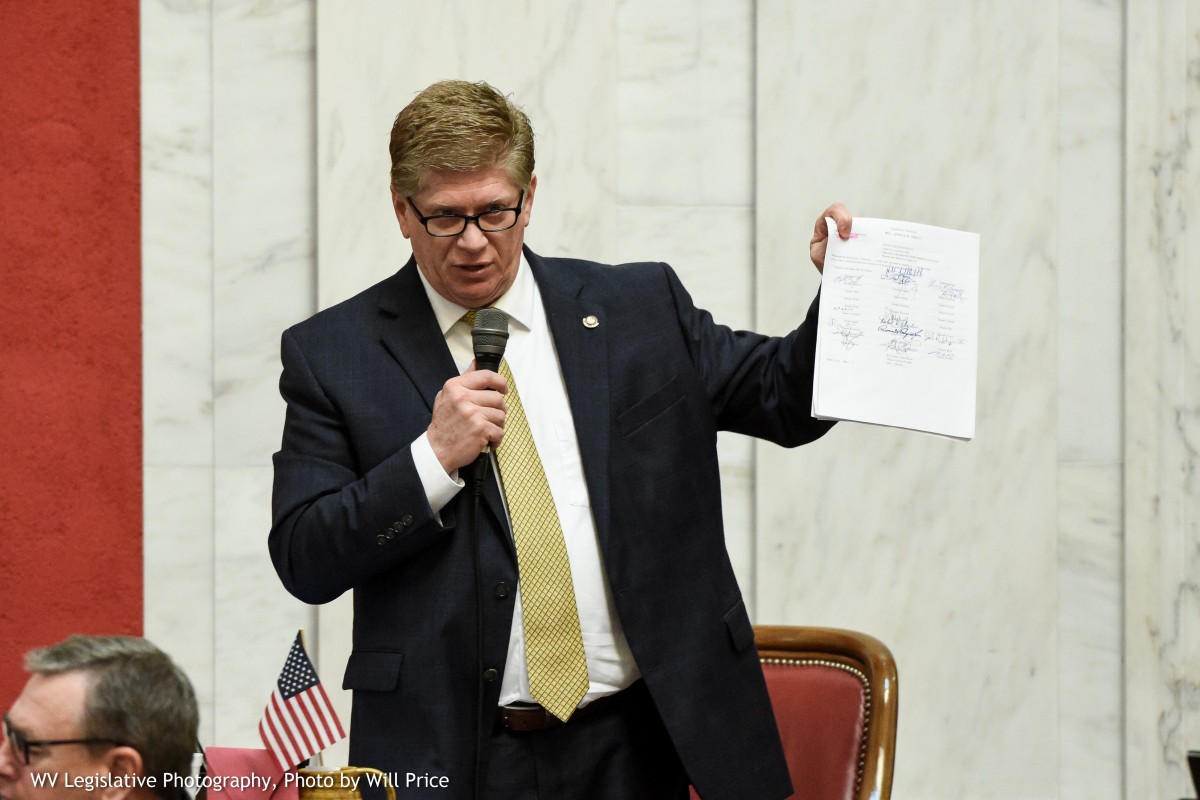CHARLESTON — A bill to apply state anti-hazing law to breakaway Greek organizations and one to grant SNAP benefits to nonviolent drug felons were among those that cleared the Senate on Tuesday.

And in a floor speech, Sen. Bob Beach, D-Monongalia, urged senators to sign onto his Medicaid Smart Health Card pilot program bill, even offering to let a Republican be lead sponsor because it’s so important to him.
Hazing bill
SB 440 passed 34-0. As Judiciary chair Charles Trump, R-Morgan, explained on the House floor, anti-hazing law was first enacted in 1995. They law applies to “any organization operating under the sanction of or recognized as an organization by an institution of higher education.”
WVU’s Rob Alsop, vice president for strategic initiatives, told The Dominion Post before the session began that this became a concern after five fraternities dissociated to form an independent council. So WVU talked with local officials and worked with the local delegation to address the problem.
SB 440 was the result, sponsored by all six Monongalia County senators plus 10 others.
It changes the law’s wording to say the law applies to “any organization whose members include students of an institution of higher education.” That wraps in the five independent frats and other others that may go independent in the future.
SB 440 now goes to the House.
SNAP bill
HB 2459 takes advantage of a federal provision that allows states to opt out of a federal ban on drug felons receiving Supplemental Nutrition Assistance Program benefits. West Virginia is one of only three states that still retains a full ban. There is no similar ban for other felons — murderers, rapists and so on.
The bill applies to drug felons who live in the state.
The original House version of the bill completely ended the ban. A Senate floor amendment excludes those felons whose crime included death, injury or misuse of SNAP benefits.
Because of the amendment, the bill returns to the House to request concurrence on the change.
Medicaid card
A Smart Health Card is a credit card-sized card with a data chip that contains a patient’s complete health records. Providers can use it to track a patient’s conditions and care and medical tests. Pharmacies can use it to track proscriptions.
Beach’s pilot program bill to try the card in West Virginia hasn’t been introduced. He had it with him on the Senate floor and pointed out that the top line of the signature page is blank.
Whichever party is in charge, it’s a reality that a majority party lead sponsor smooths the way for committee consideration. Beach said he’s willing to let a Republican take the top spot. “This is so important to me.”
Beach said afterward that the smart card could help with a number of problems. It can help reduce Medicaid fraud. It can consolidate a patient’s information so care is better coordinated. And while a third party contractor would manage the program, it could save the state money now wasted on such things as fraud and abuse and over-testing due to lack of coordinated care.
He noted that the U.S. Department of Defense employs a similar Common Access Card program that has been a success.
TWITTER @dbeardtdp Email David Beard at dbeard@dominionpost.com




